Familiar to almost everyone, the Robin was recently voted Britain’s National Bird. This is no surprise since it can be very tame and a gardener’s favourite, and of course is a popular symbol of Christmas!
Scientific name: Erithacus rubecula
Is there anything you’d like to know about Robins that isn’t covered here? Please ask us in the comments below.
From the elm-tree’s topmost bough
Hark! the Robin’s early song!
Telling one and all that now
Merry spring-time hastes along;
Welcome tidings dost thou bring,
Little harbinger of spring:
Robin’s come!Of the winter we are weary,
Robin’s Come, by William Warner Caldwell
Weary of the frost and snow;
Longing for the sunshine cheery,
And the brooklet’s gurgling flow;
Gladly then we hear thee sing
The reveille of spring:
Robin’s come!
Where do Robins live?
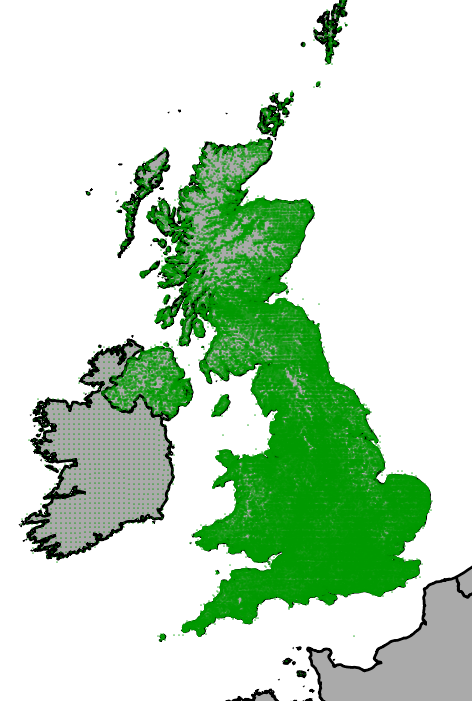
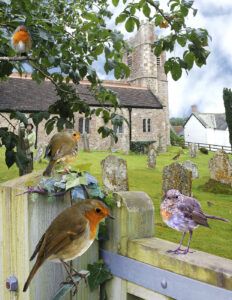
They are found almost everywhere throughout the UK, favouring woodland, parks and gardens. They also occur across all of Europe and parts of west Asia and northern Africa.
Whilst most Robins in the UK are resident, never moving very far from their home territories in summer or winter, a few do migrate south to continental Europe. Similarly, Robins from northern Europe, such as Scandinavia and Russia, may come to the UK to escape the harsh winters and take advantage of easier food supplies, and then migrate back in the spring.
What food do Robins eat?
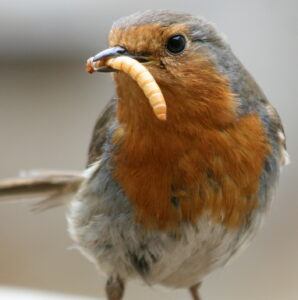
Robins love earthworms and mealworms, and insects, but will also eat seeds, nuts, suet, fruits and berries, especially in winter. They will readily come to bird tables although rarely to mesh feeders.
They can be very tame and may even eat from your hand: try this with mealworms especially! Outside of the UK they can be very wary, mainly due to persistent trapping and shooting of small birds, especially in the Mediterranean. Thankfully our resident birds have not experienced this and readily become a gardener’s friend, particular if you are digging the soil: Robins feed mostly from the ground and without the presence of larger animals such as wild boar to disturb invertebrates such as earthworms seem to watch for the gardener’s spade in the same way!
Where do Robins nest?
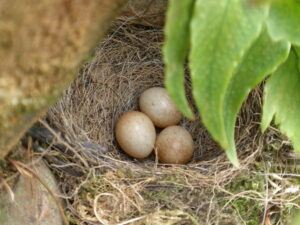
Robins build a round nest from moss and leaves, lined with down or hair. It is usually low down and well-concealed. They are noted for finding unusual nest sites, such as garden sheds, flower pots, old boots, kettles, toolboxes, farm machinery, hats and coat pockets!
They will readily use nest boxes but rather than a round entrance hole they will only use open-fronted next boxes.
What do Robins look like?
Even before you see the striking orange breast, the Robin’s rounded head with large dark eye, thick neck, and stocky appearance is characteristic. It often gives a (misleadingly – see below!) innocent impression, especially when puffed out in the winter cold. Unlike on Christmas cards however, the breast is actually orange and not red, often bordered by bluish-grey. The pattern of the breast may vary slightly between individuals, so if you pay close attention you might be able to work out how many different birds are visiting your garden!
Males and females look identical, although if you watch your garden birds closely personality might give a clue as to which is which!
What do baby Robins look like?
Young Robins are brown and heavily speckled, without the orange breast. Many feathers have yellowish tips and some of these, especially on the wing, are kept through the winter, so even when they have attained the red breast you can sometimes tell a young bird from an adult: look for a ‘wing bar’.
What do Robins sound like?
Robins have a beautiful warbling song which they frequently sing at night, and so can be mistaken for Nightingales. In fact, it is unlikely that A Nighingale Sang in Berkeley Square: it was probably a Robin!
They are also one of the earliest singers during the dawn chorus and sing a different, more wistful, song from autumn onwards, to defend their winter territories.
Their ‘tik-tik-tik’ alarm call is also distinctive, and you will often hear it when a cat is exploring the garden!
How to attract Robins?
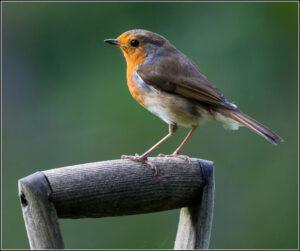
As well as stocking a bird table or tray feeder with seed, you can encourage natural feeding by ensuring that your garden has areas of loose soil, particularly if you dig this regularly. Shrubs with berries in late autumn and winter are another excellent natural food source for Robins and many other species.
Mealworms seem to be a Robin’s favourite food, and can be great for getting them to feed from your hand, especially in cold winter weather when they find it more difficult to find food for themselves. Fat balls and suet are also popular. As always, provide clean water.
Provide an open-fronted nest box in a low down and sheltered position to encourage Robins to nest in your garden.
More facts about Robins
Territorial behaviour
Robins are extremely territorial, and use their red breasts to display to rival males. They will sing at each other from prominent perches so that they can show off their chest! Hopefully this display of bravado will be sufficient to silence the intruder but, if not, they will directly fight, and injuries and even death are common: they are not always the cute and innocent creatures they are typically depicted as!
How long do Robins live?
Robins suffer high mortality and the majority do not even survive their first year. If they do, however, they can be very long-lived if they avoid fatal territorial disputes! The longest known so far lived until it was more than 8 years old.
Why are Robins associated with Christmas?
Of course, everyone associates the Robin with Christmas. The earliest connection for this is the legend that the Robin’s breast was burnt red from fanning the flames of the fire in the stable in Bethlehem to keep the baby Jesus warm, whilst another claims that a bird tried to remove the crown of thorns from Jesus’s head as he was on the cross, and its breast became stained by Jesus’s blood. In the mid-1800s British postmen wore red coats and gained the same nickname ‘Robin Redbreast’ as the bird, and some Christmas cards began depicting Robins delivering envelopes.
American Robins
Be aware that if you are reading about Robins on the Internet you will often come across the American Robin, popularly and confusingly just known as Robin in the United States. Whilst it also has an orange breast it is actually a thrush and therefore more closely related to a Blackbird than ‘our’ Robin. It was apparently first named ‘Robin’ by earlier settlers as it reminded them of the Robin from home. An American Robin sneaked in to ‘A Spoonful of Sugar’ despite the fact that Mary Poppins was singing it in Europe!
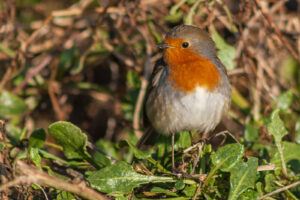
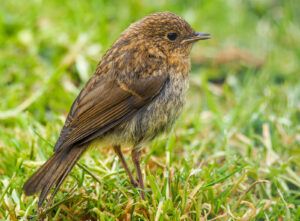
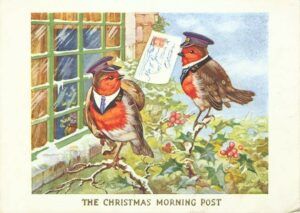
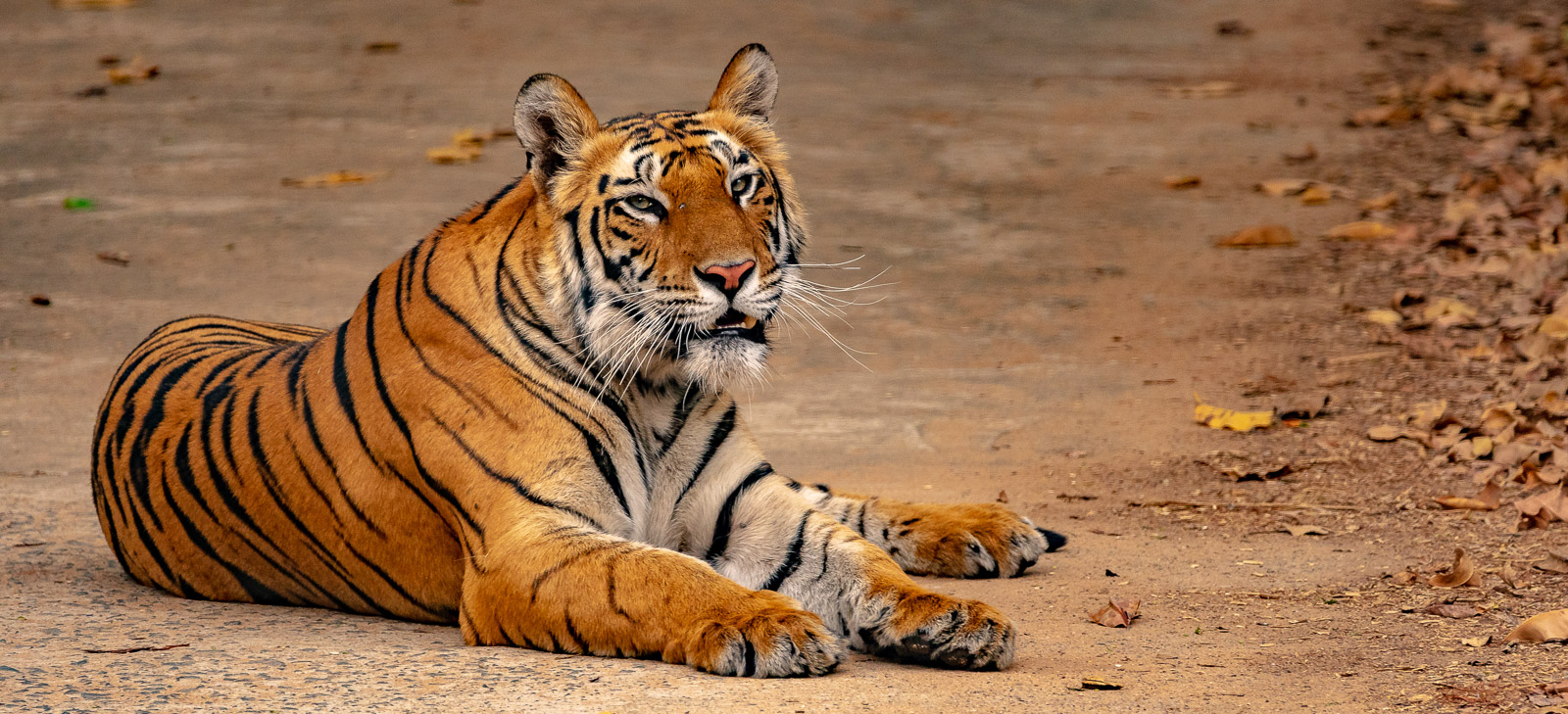
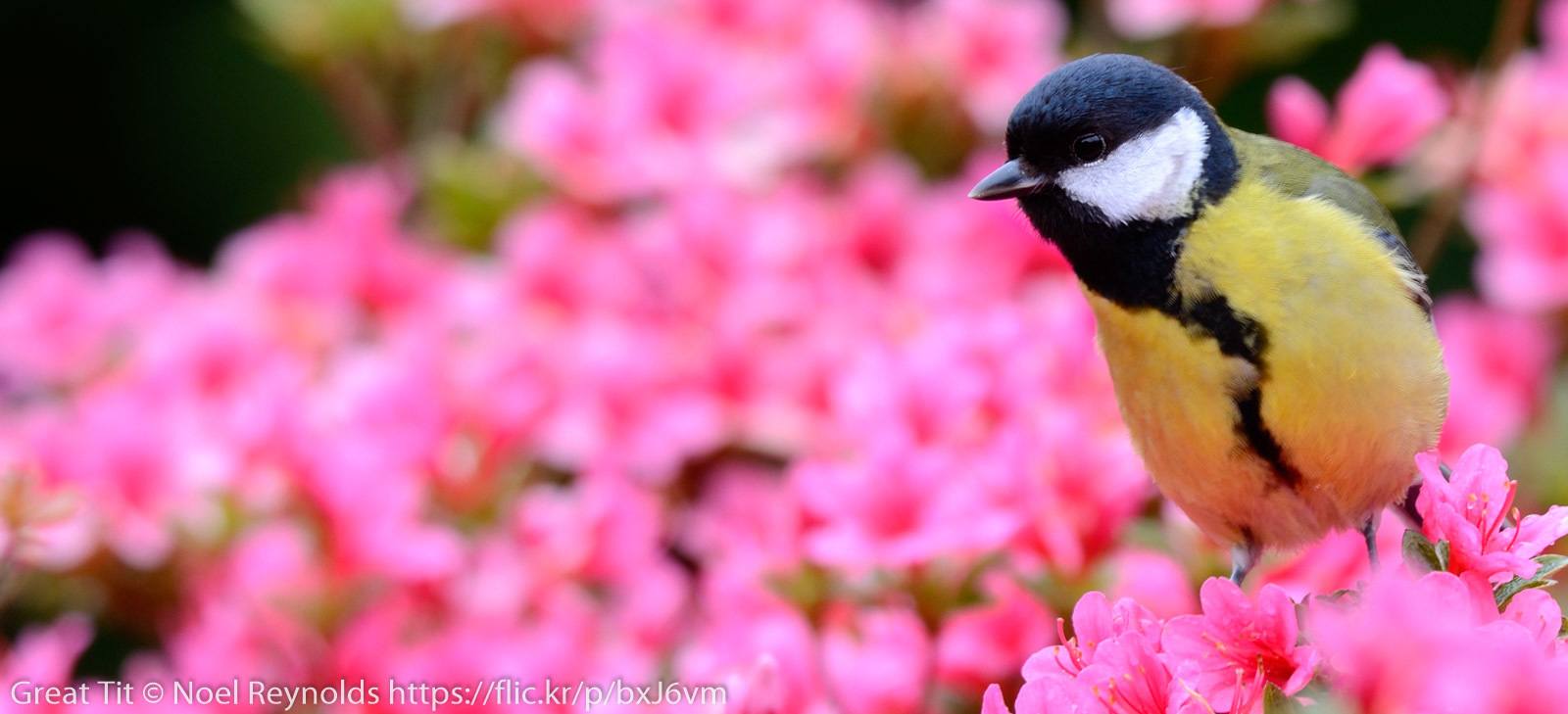
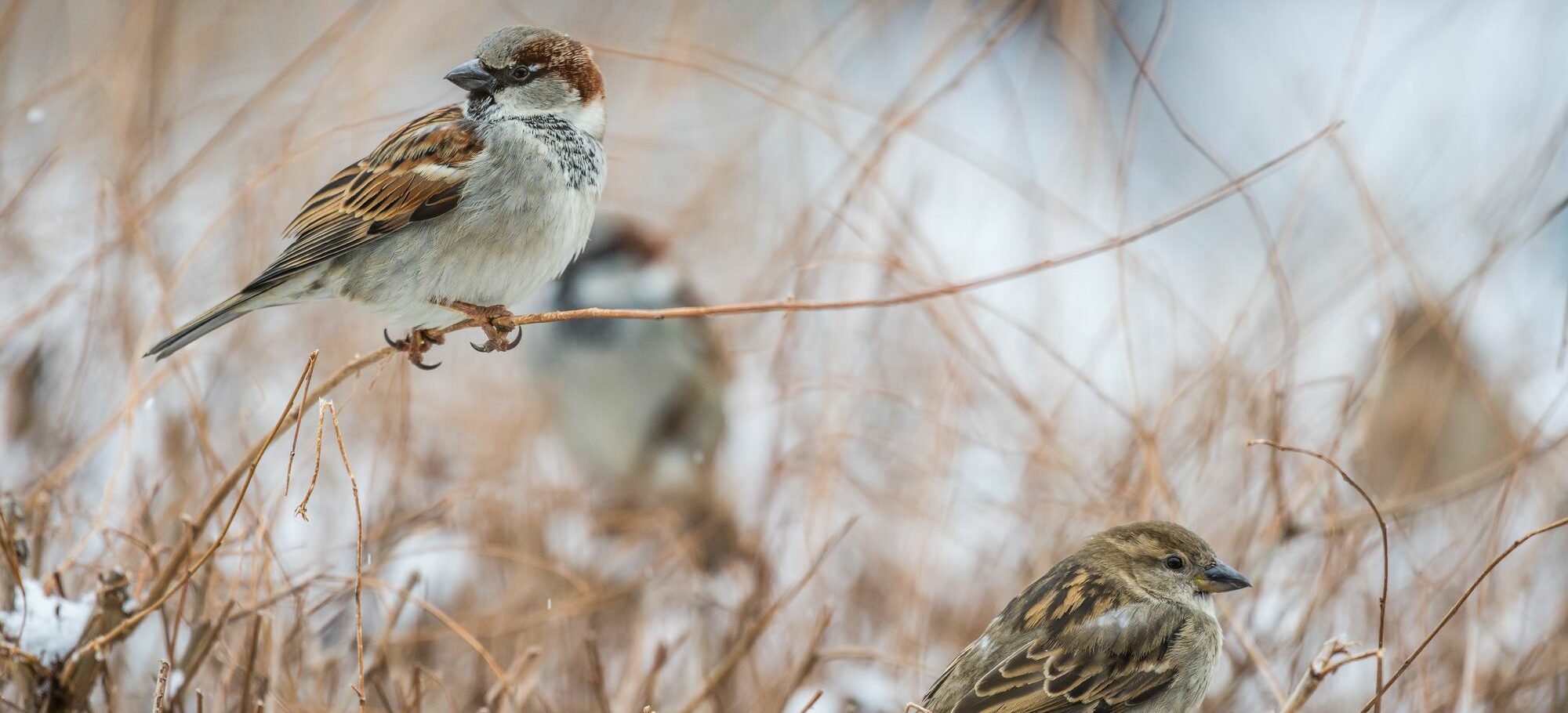
How long after the nest is completed do they lay the eggs? I don’t know if my front door nest is abandoned and want to be sure before removing it. They lined the mud 2 days ago and I haven’t noticed anything since then although they are still staying close by.
I think with most birds it is normally just 3 or 4 days. Robins are easily disturbed though, and will readily abandon nests. It’s probably best to wait for a week or so: or ideally just leave it unless you have a real need to remove the nest.
It doesn’t answer this question, but the RSPB have a nice article about Robin’s nesting habits.
Thanx so much. I noticed yesterday afternoon that they did put dried grass in the nest but nothing since. I will wait tho.
Thanx so much
Janet
Do robins have repeat broods in the same nest or do they use a new nest?
They do build a new nest each time, and it’s not unusual for them to have three broods in a year. If they use a nest box, then this means that they will probably only use it once a year, as it is really only safe to clean the box out once in the autumn
many years ago I heard a thumping noise outside my sliding glass door at my kitchen. After several days of this I went to investigate and there was a Robin on my patio shimmering his wings up the glass door so high and then he would drop to ground and flutter up again. My Mother was sick at the time and soon after she died and the Robin never came back. It made me wonder about re-incarnation and could that have been my Dad coming to get my Mother. Now a Robin is doing the same thing to my sons kitchen window. Their dog is sick and I just had a bout with cancer but I seem to be OK and I wonder why this is happening again with the Robin pecking at the kitchen window. What do you think?
Hi Lucille
Birds flying at glass windows or doors is quite common, and is because they see their reflection as a possible intruder. It’s most common in early spring as it is the height of their breeding season, and males are defending a territory. I’m pretty sure there is no evidence for Robins being reincarnated—being common birds where this behaviour is observed fairly frequently, I’d put the Robin coming to your son’s windows as just a coincidence!
I’m very glad to hear you are recovering from your cancer, and wish your son’s dog well also.
My two robins have left my garden after over wintering and enjoying mealy worms.They were here up to three days ago but have not been seen since. I noticed that the smaller one would feed the larger who was not as bold. Presumably this is the last time to see them until the autumn if they are still alive.
We have had nests built under the deck by robbins for over the past 20 years. Do they have a sense of returning home?